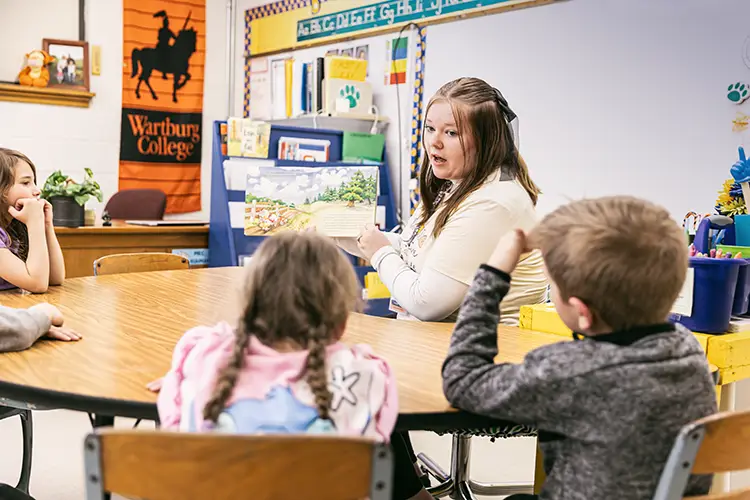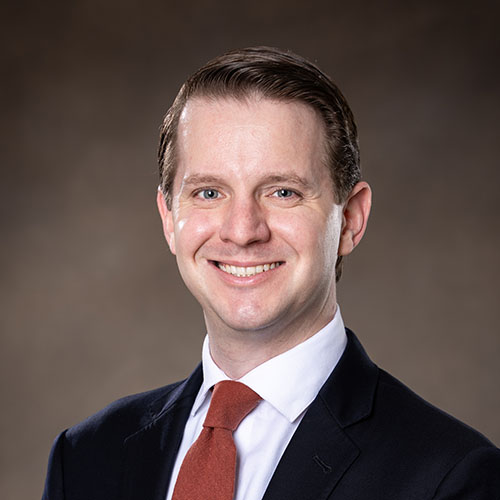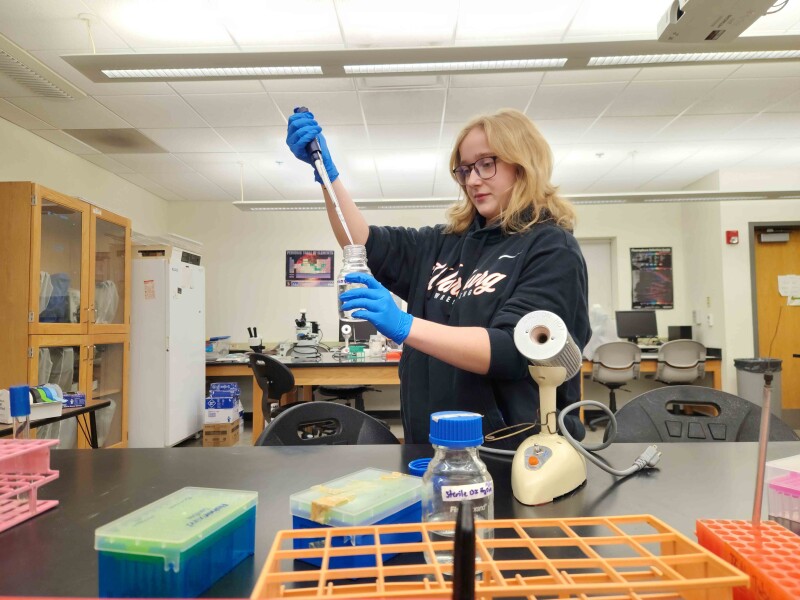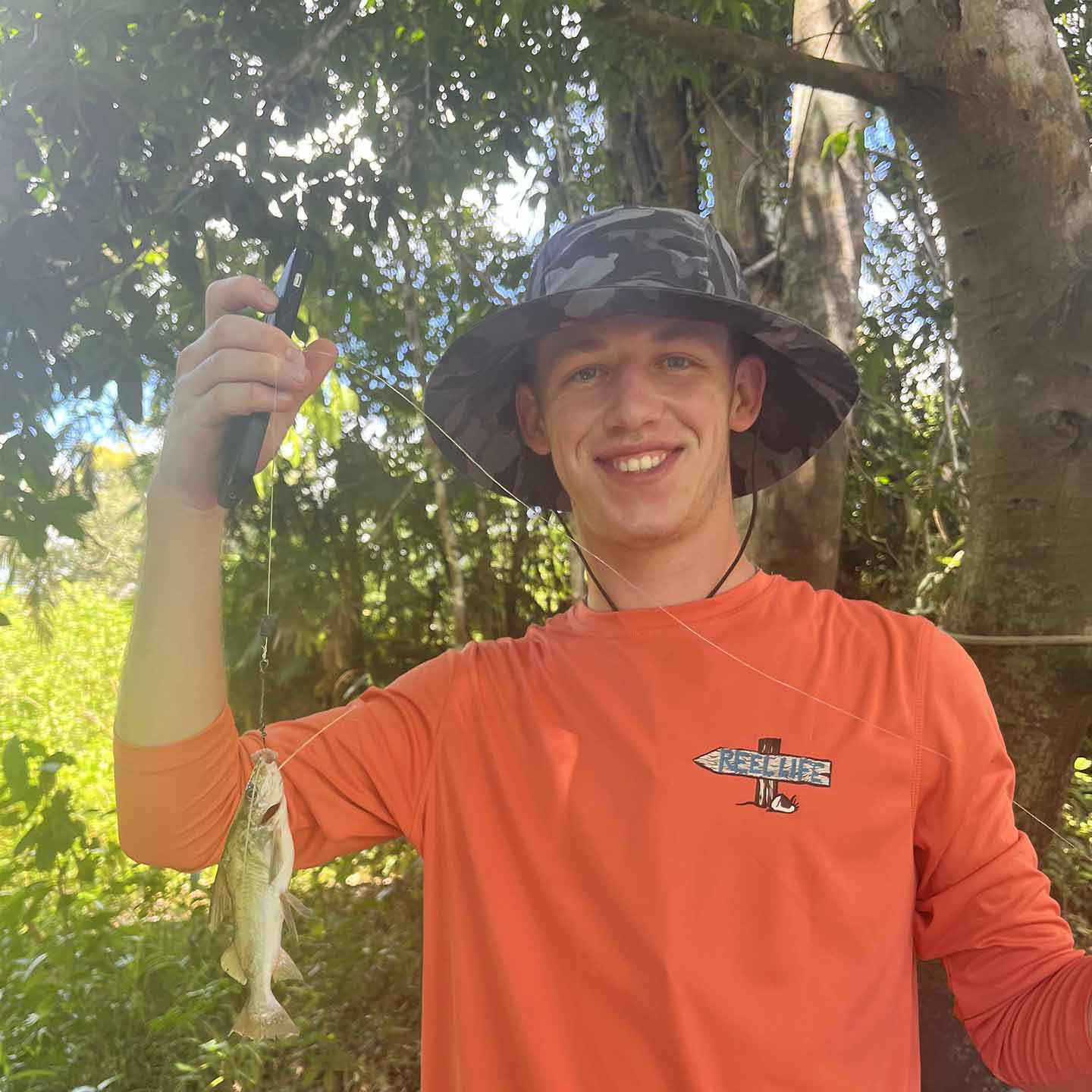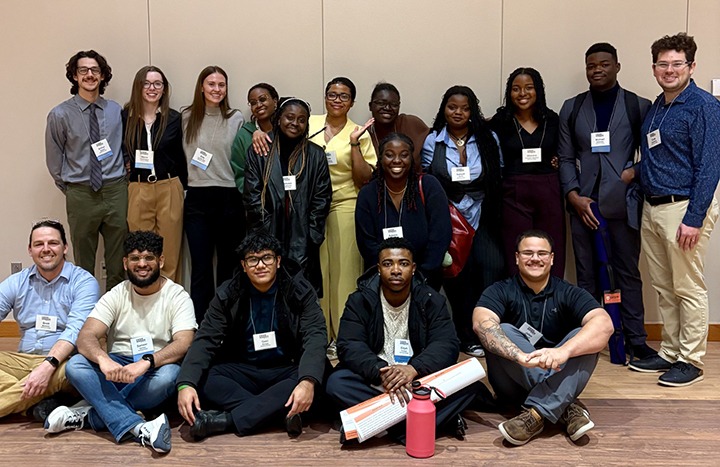Building community in political science, music
NAME: Andrew Buchheim
CLASS YEAR: 2023
HOMETOWN: Sun Prairie, Wisconsin
MAJOR: English and Political Science
CAMPUS INVOLVEMENT: Kammerstreicher President, St. George String Quartet, Wartburg Community Symphony, Wartburg College Democrats Vice President, Scholars Program President
WHY WARTBURG: My family for many generations has gone to Wartburg, so of course, I toured here a couple times in my college search. It was good to have those kinds of connections at Wartburg, but I think it came down to being able to have a place away from home where I could do a lot of different things and not be committed to making those my career. For example, I don’t want to be a musician for my life. However, I didn’t want to just stop playing in orchestras or stop playing with other people. You can do a lot of things like that with this size of community, and it’s really supportive.
HOW DID YOU CHOOSE YOUR MAJORS: I started off as a political science and history double major. I picked political science because I already had AP credits towards that major from high school, and I also really like politics. I think it’s very interesting. I wanted that international perspective in my education, and political science is a great place to get that. Especially coming into college with the 2020 election happening in my freshman year — that was a big cultural moment to be a part of and to study. I picked up an English major my second semester of college instead of history. I just wanted to be in the humanities, and I felt like English is a good way to improve in writing. I like reading stories and analyzing things and getting into theories and theoretical approaches. In terms of the social sciences and the humanities, you’re just getting a grasp of things, but I think English is a major where you really start to dig into fundamental ways of viewing the world or addressing the problems that are going on through literature.
WHAT ARE YOUR PLANS AFTER GRADUATION: I was accepted at the University of Wisconsin-Madison in English Ph.D. program. It has a master’s included with it. Once I finish my classes, I will write a thesis, and I’ll start teaching graduate students, as well.
WHAT IS YOUR FAVORITE PIECE OF LITERATURE: Othello by Shakespeare. I’ve had so much proximity to this piece for a long time because I’ve been using it for research, but I just think it’s beautiful. It’s hard to read because it’s so tragic, and it does have some underlying problems, but it’s probably my favorite, as I’ve been attached to it for the last two years.
HOW HAS BEING PART OF THE SCHOLARS PROGRAM SHAPED YOUR EXPERIENCE AS A STUDENT: I think that Scholars has set me up for shooting higher than just getting a degree. My goal was to make the most of my experience at college by learning the most I can and gaining a lot of transferable skills. The kind of writing we did in Scholars was good for academic writing, but also, I feel like I can talk and write more clearly in any kind of writing. Additionally, I’ve learned a lot about being a leader and that has helped me develop a lot of organizational and event-planning skills. One of the things we navigated as a leadership team was how to build a community in a post-COVID landscape. Part of what I learned during that time was how to deploy strategies to get people to come outside of their rooms and engage in community. It’s taught me a lot about how to get people involved in the things that I want to do in my future life and career. The pandemic taught me that community is the essence of being a human.
HOW HAS BEING INVOLVED IN MUSIC INFLUENCED YOUR EXPERIENCE AS A STUDENT: Music was a big thing that kept me going because those organizations were able to keep going relatively normally throughout the pandemic. The 2020-21 academic year, with online concerts, resulted in a lot of personal growth for me, as I was able to dedicate myself to my instrument. I think it was very grounding for me in those difficult years. It’s something I can fit in my schedule every day. I know I am going to play music with people every day, and that’s very gratifying. Seeing the growth of the strings program over the last four years has been really wonderful. I think in the last two years, especially with our leadership and a lot of new students coming in, there’s been a lot of vitality and passion. Additionally, being involved with the Wartburg Community Symphony and the St. George Quartet has connected me to so many people in the community who I may not see or know at school — not just players but people who come to the concerts and people on the association board.
WHAT IS YOUR PROUDEST ACHIEVEMENT IN YOUR FOUR YEARS AT WARTBURG: Getting into grad school is an achievement I’m very proud of because it’s a culmination of other achievements. I also think the research I did with Othello granted me a lot of opportunities. I presented that research at the Richard Macksey National Undergraduate Humanities Research Symposium at Johns Hopkins University last April. Even though it was online due to the pandemic, it is one of the only undergraduate humanities conferences in the nation. I spent this fall revamping that research, and I feel like the work I completed there was some of the best writing I’ve ever done.
WHAT IS YOUR FAVORITE WARTBURG MEMORY: The day that they announced that everybody had to go home due to the pandemic was a very memorable moment in my life. But another one was this semester. One day in early February or late January, it was snowing really hard, and my roommate Hayden Stone texted the Castle Singers group chat and all the music students and said we should all go out and have a snowball fight. It was so beautiful out, and it was the best snow you’ve ever seen. Around 200 people came out and played in the snow together, having a snowball fight on campus lawn, and it was a really magical experience.
HOW HAVE YOU EMBODIED WARTBURG’S FOUR PILLARS: Service and leadership are very much interconnected because when you lead you are inevitably serving other people. My philosophy is I try to be as involved as I can be to make the most of these four years. I want to leave a good legacy at Wartburg. I want people to remember me positively, and I think part of that for me was getting out there and doing things my first year. I have met so many people from taking on leadership roles. Sometimes, you can feel the weight on your shoulders, but it feels really rewarding when you achieve something, and you can look back and see your role in it. There’s something really gratifying about that experience of being a leader and being a mentor to other people. Taking care of others and connecting with them leaves a legacy in people’s minds when they think of Wartburg. It shows them that there are people who will look out for them and who they can always count on. That’s what’s driven my involvement and my philosophy of engagement at Wartburg.
WHAT IMPACT DO YOU HOPE YOU’VE HAD ON THE CAMPUS: I hope I’ve done my best to connect with people, especially in political science, because a lot of what we do revolves around discussion and arguments that inevitably bring you closer together. Community is something I want people to remember being an important part of being at college. With my student organizations, I hope I’ve made an impact by getting people engaged and keeping them interested in building community, especially in the string programs. My biggest goal over my four years has been rebuilding a good culture where people can come together and collaborate to do something really special. I hope I helped people realize how important that is and that it takes work from everybody to keep the community together because there’s always this centripetal force that’s pulling people apart with the stress of college.
Share

